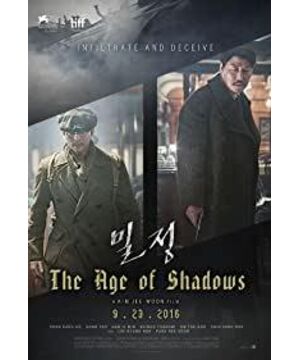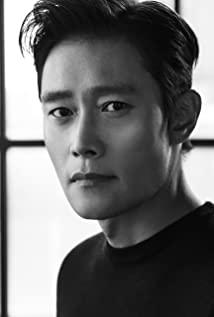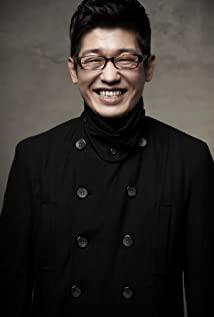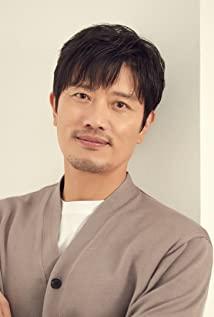When South Korea announced the best foreign language film for the Oscars earlier, there was a small wave of waves among mainland movie fans.
Returning from Cannes with acclaim, "The Cry" that shocked the West could not be played for the country. The female film "Miss" based on English books and showing the unique oriental culture also failed. The anti-Japanese film "The Secret Agent" unexpectedly shouldered the heavy responsibility. , Floating across the ocean to compete with more than 80 films for awards.
Similar to "Assassination", which was popular in the Mainland last year, "Secret Agent" tells the story of a group of righteous men who pursued national independence and assassinated high-ranking Japanese military officials.
Song Kanghao, the first brother of Chungmuro Road, and Kong Liu, a powerful actor, lead the starring. The cumulative number of local movie viewers is approaching 7.5 million ("Cry" 6.86 million, "Miss" 4.13 million), with outstanding results, and the Korean audience scored 8.56.
In the recent 36th Korea Film Critics Association Awards, "The Secret Agent" took the top spot and won the Best Work Award. At the same time, it was selected as one of the top ten films of the Korea Film Critics Association. With both audience support and professional affirmation, "The Secret Agent" sounds like a movie with good quality. But the reputation in mainland China has plummeted.
Director Jin Zhiyun started making horror films. He is well-known to fans of "Rose, Red Lotus". With "Seeing the Devil", he established his position in the film industry. Starring Vassinger), the box office word-of-mouth double loss.
"The Secret Agent" also means a bit of a "last fight", and now it seems to be a success.
Jin Zhiyun had also come into contact with anti-Japanese themes before. In 2008, he pioneered a "Korea Western" "Good Guys, Bad Guys, and Strange Guys", which tells the story of the Japanese invasion of Korea and the Koreans exiled to western China to seek their lives. .
Contrary to the comedy style of the "three guys", "The Secret Agent" is realistic and heavy, with a shootout and shocking bloody scenes at the beginning.
Song Kanghao, who has excellent acting skills, played a role with no acting skills. As a Korean who held an important position in the Japanese police station, he became a secret agent that Japan and South Korea tried hard to fight for.
"Secret Agent" is a spy, and the English name is translated as "The Age of Shadows", which instantly becomes a bit thicker and more forbearing, and full of oriental flavor. An American audience on IMDB wrote this comment with the title "The movie you have to experience":
Hollywood-style Korean films satisfy the wishes of the audience in their country, but in the eyes of foreigners, such works cannot replace Hollywood films. No matter how Korean movies try, their budgets are lower than those of Hollywood, and the scenes are smaller. However, "The Secret Agent" is different, it is unique. I will not praise its action scenes, or comedy plot, because they are not that outstanding. What I want to admire is the atmosphere of this movie, and the suspense remained until the end.
Metascore, a professional scoring website for film critics that has always been harsh and unrelenting, has given "The Secret Agent" a high score of 78 points. Among the 13 media outlets, except for a moderate evaluation, the rest are all positive reviews. Senior film critic Jay Weissberg praised the film in Variety Magazine:
The film unfolds in classic action scenes. No matter who it is, anyone can get what they need in this masterpiece. No wonder South Korea chooses it to compete for the Oscar. "The Secret Agent" is destined to be a localized work with a strong international style.
The film also won the 2016 Austin Fantasy Film Festival Action Unit Best Picture Award, excuse me? The film crew went so far as to vote this movie at the strange fantasy film festival.
But as a Chinese audience who grew up in anti-Japanese dramas, it may be difficult to get satisfaction when watching "The Secret Agent" with a trace of aesthetic fatigue and anticipation. Traffickers and pawns, Jiang Yang thieves, brothel prostitutes, women, old and weak women and children, scholars, farmers, commerce and industry... In Chinese anti-Japanese themes in film and television works, people of any class, occupation, and gender have participated in the anti-Japanese war, and their starting points are different. , The background is different, the mental process and the ending are also different, and it is not black or black. Chinese anti-Japanese works almost exhaust the image of "anti-Japanese". "Secret Agent" can be regarded as a dual male lead setting, but the main plot is still focused on the role of Song Kanghao. Only this character shows changes and contradictions in the film, and almost all other characters are reduced to symbols. The characters are not clear and full, and the Chinese audience who have experienced the stormy face are expressionless.
On the plot, lengthen the long version of the standard narrative. 2 hours and 10 minutes, Marvel's large group of superheroes is enough for another fight.
There is only one thing on the main line. The bombs are returned from Shanghai to Kyoto to assassinate the senior Japanese officials. The key to the success of the incident was still concentrated on Song Kanghao. The small branch line includes the traitors in the square, which can be solved in minutes on the train. As for Kong Liu's ambiguous love, it tastes worse than chicken ribs. Except that the train scene is slightly tense-I am afraid that this "tension" is also due to Kong Liu, the hero of "Travel to Busan" who got on the train-the rest of the plot is loose and lengthy. The "suspense" praised by Western audiences was all expected for Chinese audiences who resisted and spy wars every day. The ending reversal is also called a reversal? ! The biggest highlight of the film is probably "Why Persist". Unlike China, which can fight a protracted war, South Korea is a small country with few people, backward in technology, and controlled by powerful enemies. The provisional government is in exile in Shanghai. However, most of China is also under the heels of Japanese invaders. Therefore, groups of people with lofty ideals go to death, and independence is delayed in the future. Why do they still insist on it? Why do they still insist on it? Those who are willing to be Han traitors are because of greed, and perhaps even more because they no longer have any hope for the independence of the country.
In "Assassination," Lee Jung-jae was asked why he betrayed his comrades: "I didn't expect to be independent. If I knew it, I would not." The country is actually an empty symbol, and it is more effective to project this symbol on the individual. When Song Kanghao had to burn a soldering iron on the girl's face, the girl's painful scream was "Why persist, why persist?" It is a pity that the focus of the film does not lie in this. In the loose and lengthy plot, the wonderful performances add to the torture of the audience.
In the early years of Korea, there was a large number of boutiques that focused on the history, contradictions, and entanglements between Korea and Korea. In the past two years, national sentiment has been unexpectedly high. Anti-Japanese stories have been added to the story. Local audiences have gone on to buy it. Western audiences should be watching oriental Hollywood movies. Probably only the Chinese audience is “in it” and “outside of it”. (This article was first published on the Barcelona Film APP/ Barcelona Film WeChat public account MovieBase, please seek permission from Barcelona Film for reprinting.)
View more about The Age of Shadows reviews











